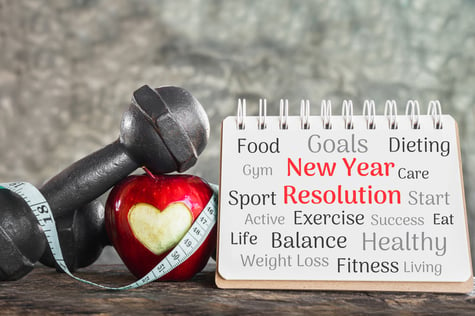 Happy New Year! As we embark on a journey to transform our lives through physical fitness, mental well-being, and a balanced lifestyle by exploring the components of a holistic approach to health that will help you achieve your fitness goals and lead a fulfilling life.
Happy New Year! As we embark on a journey to transform our lives through physical fitness, mental well-being, and a balanced lifestyle by exploring the components of a holistic approach to health that will help you achieve your fitness goals and lead a fulfilling life.
Physical Fitness
To kickstart your fitness journey, it's essential to incorporate regular physical activity into your routine. This can include activities such as
- Cardiovascular exercise: Engage in activities such as running, cycling, or swimming to improve cardiovascular health and boost endurance.
- Strength training: Building lean muscle not only increases your metabolism but also enhances your overall strength and posture.
- Flexibility and mobility: Incorporate yoga or stretching exercises to maintain flexibility and prevent injuries.
Remember, consistency is key. Find an activity you enjoy, set achievable goals, and gradually increase the intensity to challenge your body and see progress.
Nutrition
A balanced diet is the cornerstone of any fitness journey. Here are some fundamental tips:
- Eat whole foods: Opt for natural, unprocessed foods like fruits, vegetables, lean proteins, and whole grains.
- Stay hydrated: Drink plenty of water throughout the day to support bodily functions and keep your energy levels up.
- Practice portion control: Pay attention to portion sizes to avoid overeating and listen to your body's hunger and fullness cues.
- Try meal planning: Plan your meals to ensure you make healthier choices and avoid relying on unhealthy snacks.
Mental Well-being
A healthy mind is just as crucial as a healthy body. Incorporate these practices into your routine:
- Mindfulness meditation: Practice mindfulness to reduce stress, improve focus, and boost overall mental well-being.
- Adequate rest: Ensure you get enough sleep each night to support physical recovery and cognitive function.
- Stress management: Find effective ways to manage stress, such as yoga, deep breathing, or engaging in hobbies you enjoy.
Community and Support
Surround yourself with a supportive community. Share your fitness journey with friends and family, or join fitness classes or online groups where you can connect with individuals who have similar goals. Having a support system can provide motivation and accountability.
Goal Setting
Set realistic, achievable fitness goals. Break them down into smaller milestones to track your progress and stay motivated.
Consistency and Patience
Rome wasn't built in a day, and similarly, a healthy lifestyle won’t be either. Be patient and stay consistent with your efforts. Celebrate small victories along the way and remember that setbacks are a natural part of the journey.
A holistic approach to health encompasses physical fitness, nutrition, mental well-being, community, goal setting, consistency, and patience. Embrace this approach, and you'll be closer to achieving your fitness goals and cultivating a balanced life. Take that first step today, and unlock your fitness potential for a healthier, happier you. Your NIFS Health Fitness Specialist can help you get started.
This blog was written by David Sebree, NIFS Health Fitness Specialist. To learn more about the NIFS bloggers, click here.


 Roughly how many hours of sleep would you say that you average per night? Six hours? Ten hours? Now think about your fitness goals and the results you want to see from exercising. Are you where you would like to be, or are you on pace to get to where you would like to be? You can be doing everything correctly from the exercises that you perform, nutrition and supplementation, stress reduction, whatever it may be, and you aren’t quite getting the results you’re looking for.
Roughly how many hours of sleep would you say that you average per night? Six hours? Ten hours? Now think about your fitness goals and the results you want to see from exercising. Are you where you would like to be, or are you on pace to get to where you would like to be? You can be doing everything correctly from the exercises that you perform, nutrition and supplementation, stress reduction, whatever it may be, and you aren’t quite getting the results you’re looking for.